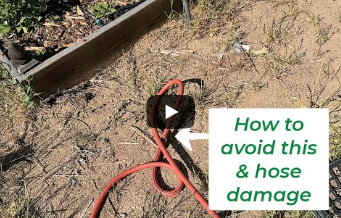Using compost or worm castings to create your own fertilizer spray
Hello fellow garden-eers and plant lovers! Today, we’re going to talk about two phenomenal techniques that can help bring life and vigor to your green space: foliar feeding and using compost or worm tea. These simple yet effective techniques can significantly enhance the health and productivity of your garden.
The Power of Foliar Feeding
Foliar feeding is a method of fertilizing plants directly through their leaves. Plants are, to some extent, capable of absorbing essential elements through their foliage, in addition to the regular nutrient uptake via their roots. This technique offers several benefits to your garden:
- Fast nutrient absorption: Plants can absorb nutrients through their leaves much faster than through their roots. In cases where nutrients are deficient, foliar feeding can provide a quick fix.
- Increased effectiveness: Foliar sprays often have higher bioavailability, meaning the nutrients are in a form the plants can use more immediately and effectively.
- Addressing nutrient deficiencies: Foliar feeding can effectively correct nutrient deficiencies. It’s a quick way of giving your plants a boost when they look a bit ‘under the weather.’
- Reduced soil dependency: Foliar feeding minimizes dependency on soil fertility. Even if your soil isn’t top-notch, you can still ensure your plants get the nutrients they need.

Compost Tea – A Liquid Gold for Plants
Compost tea, not for your afternoon break but a nutritious concoction for your plants, is another game changer. It’s a liquid solution or suspension made by steeping compost in water. It’s an excellent way to provide nutrients and beneficial microbes to plants, helping them grow stronger and more resistant to diseases.
“Worm tea,” also known as worm compost tea or vermicompost tea, is a liquid byproduct of worm composting (vermicomposting). It is made by steeping worm castings (the end-product of the breakdown of organic material by worms) in water. The process extracts the beneficial microorganisms and nutrients from the castings into the water, creating a nutrient-rich liquid.
Making Compost Tea
Making your own compost tea at home is simple:
You’ll need:
- A large bucket or container
- Unchlorinated water (as chlorine can kill beneficial microbes)
- Quality compost or worm castings
- A burlap sack or an old pillowcase
- A small air pump (like those used in aquariums)
Steps:
- Fill your container about 1/3 full with quality compost.
- Put the compost in the burlap sack or pillowcase and tie it closed.
- Place the sack in the bucket and fill it with unchlorinated water.
- Install the air pump to aerate the mixture. This promotes the growth of beneficial aerobic bacteria and fungi.
- Let the mixture brew for 2-3 days, making sure to stir it occasionally.
- After brewing, remove the bag of compost. Your compost tea is ready!
Using Compost Tea
Compost tea can be used as a soil drench or a foliar spray. When used as a soil drench, it introduces beneficial organisms and nutrients into the soil, enhancing its overall fertility. As a foliar spray, it provides nutrients directly to the plant and can help control foliar diseases.
When spraying compost tea, ensure it’s finely misted, but not dripping excessively, as the goal is to coat the leaves lightly. This can be done in the early morning or late afternoon, avoiding the intense heat of the day.
It’s best to use fresh compost tea, but if you need to store it, keep it in a cool, dark place and use it within a few hours.
So, there you have it – a quick rundown on foliar feeding and the magic of compost tea. These techniques are environmentally friendly, economical, and a boon to your garden’s health and productivity. Give them a try and watch your plants thrive like never before!
Compost Tea FAQ
- What is compost tea? Compost tea is a liquid solution made by steeping compost in water. It’s used to add beneficial microorganisms and nutrients to soil and plants. The tea is made by brewing compost in water for a certain period, allowing the transfer of microbes and nutrients into the liquid.
- How do you make compost tea? To make compost tea, you need a bucket, water, compost, and an optional air pump for aeration. Fill the bucket with water, add compost, and let it steep. If aerating, use the air pump to provide oxygen which helps beneficial microbes grow. Steep for 24-48 hours.
- What are the benefits of using compost tea? Compost tea improves soil health by adding beneficial microorganisms and nutrients. It can enhance plant growth, increase disease resistance, and improve soil structure. It’s also an eco-friendly alternative to chemical fertilizers.
- Can compost tea harm plants? If not properly brewed or if made from contaminated compost, compost tea can harm plants. It’s crucial to use well-decomposed, high-quality compost and ensure proper aeration during brewing to prevent harmful bacteria growth.
- How often should you apply compost tea? Frequency depends on the plants’ needs and the garden’s condition. Generally, it can be applied every 2-4 weeks during the growing season. Adjust based on plant response and environmental factors.
- Is compost tea the same as worm tea? No, compost tea and worm tea are different. Worm tea is specifically made from worm castings, while compost tea can be made from various types of compost materials.
- Can you store compost tea? Compost tea should be used within a few hours of brewing for maximum benefit, as the beneficial microbes are most active. Storing it for extended periods can reduce its effectiveness.
- Does compost tea smell? Properly brewed compost tea has an earthy smell. If it smells foul or rotten, it may indicate anaerobic conditions or contamination, which can be harmful to plants.
- Can compost tea replace fertilizers? While compost tea is nutrient-rich, it’s more about improving soil health and less about directly replacing fertilizers. It works best in conjunction with a balanced gardening approach.
- How do you apply compost tea? Compost tea can be applied directly to the soil or used as a foliar spray. When sprayed on leaves, it can help improve nutrient uptake and disease resistance.
Other resources:
Recent Posts

The Advantages of Built-Up Garden Beds: A Gardener’s Best Friend

The Secret Weapon for Lush Blooms: How to Create the Perfect Fertilizer Schedule

Create a Stunning Cottage Garden with These Easy-to-Grow Flowers

Fastest Growing Trees: Transform Your Landscape Quickly

What to Plant in July: A Comprehensive Guide for Gardeners










